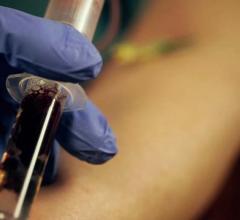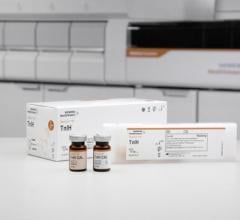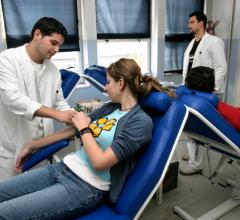
October 8, 2015 — Invitae Corp., a genetic information company, announced the expansion of its cardiology offering, including more than 30 cardiovascular test panels for arrhythmias, cardiomyopathies, aortopathies, familial hypercholesterolemia, pulmonary hypertension and congenital heart disease.
Genetic cardiac conditions may be difficult to diagnose. Often, the first evidence of a hereditary cardiac condition is the sudden death of an otherwise healthy person, sometimes in infancy or childhood. Invitae’s expanded cardiovascular test menu allows the company to provide first-line genetic testing for inherited arrhythmia and cardiomyopathy conditions, including sudden cardiac arrest or death, as well as inherited aortic diseases and familial hypercholesterolemia, one of the most common inherited cardiovascular conditions. This comprehensive cardiology offering includes a rigorous, evidence-based variant classification process developed by a team of board-certified genetic counselors, Ph.D. scientists, and physicians with special expertise in the genetic testing for hereditary cardiovascular disorders.
“Heart disease is the number one cause of death in our country, and there are a number of red flags that could indicate when there’s genetic heart disease in the family,” said Amy Sturm, MS, LCGC, associate professor and genetic counseling expert at the Ohio State University.
Sturm encourages everyone to pay attention to the following types of events in their family health history:
- A relative diagnosed with heart disease at an early age;
- Multiple family members who have had a heart attack, an abnormal heart rhythm, heart failure or a heart transplant; and
- A relative who died suddenly or had an unexplained death.
With this offering, Invitae’s cardiology menu will expand to more than 190 genes. Clinicians can easily choose the right test for their patient, with no penalty for starting with large or small panels, because of Invitae’s policies of charging a flat price per indication — regardless of the number of genes ordered — as well as allowing physicians to re-requisition additional genes for the same condition within 90 days for no additional charge.
According to patient advocacy organization the Sudden Arrhythmia Death Syndromes (SADS) Foundation, making testing more accessible is key. “We believe that with genetic information families can better understand their genetic risks and when necessary, take preventive action,” the organization stated in their recent newsletter. “Lowering costs of testing and making tests easier to get will help families everywhere. We believe that by working to make these genetic tests more available and affordable we are giving families information that will help save lives.”
Invitae offers a transparent pricing structure independent of the number of genes required to provide an accurate diagnosis for any specific clinical indication. For payers and institutions who are in contract with Invitae, the price per indication can be as low as $950, depending on the payer’s requirements. For third-party payers with whom Invitae is out of network and for non-contracted institutions, the price per indication remains $1,500. In addition, for patients without third-party insurance coverage or who do not meet insurance criteria for coverage, Invitae offers its full test menu for $475 per indication for patients whose clinician has ordered the testing online and who register online and pay in advance for the testing.
For more information: www.ir.invitae.com


 October 09, 2019
October 09, 2019 









